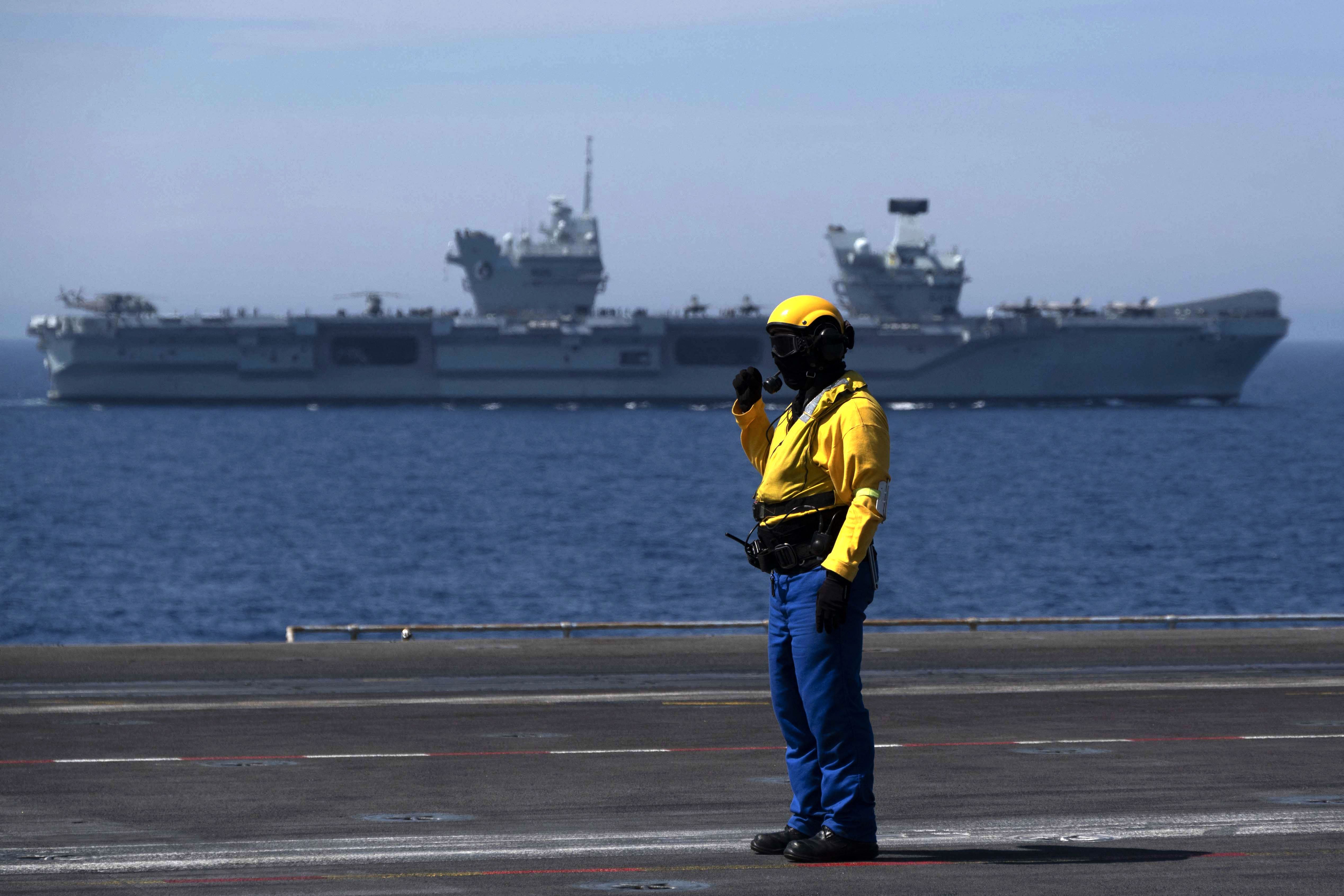China warns ‘b***h’ Britain about aircraft carrier sailing in disputed South China Sea
State media urges UK to ‘stay at least 12 nautical miles away from Chinese islands and reefs’

Your support helps us to tell the story
From reproductive rights to climate change to Big Tech, The Independent is on the ground when the story is developing. Whether it's investigating the financials of Elon Musk's pro-Trump PAC or producing our latest documentary, 'The A Word', which shines a light on the American women fighting for reproductive rights, we know how important it is to parse out the facts from the messaging.
At such a critical moment in US history, we need reporters on the ground. Your donation allows us to keep sending journalists to speak to both sides of the story.
The Independent is trusted by Americans across the entire political spectrum. And unlike many other quality news outlets, we choose not to lock Americans out of our reporting and analysis with paywalls. We believe quality journalism should be available to everyone, paid for by those who can afford it.
Your support makes all the difference.China has warned Britain against provocation in the wake of Britain’s HMS Queen Elizabeth carrier strike group approaching the South China Sea through the Strait of Malacca on Sunday.
“We seriously warn this group: They are obliged to remain restrained and obey the rules. Please follow the current international shipping lanes and stay at least 12 nautical miles away from the Chinese islands and reefs,” wrote state mouthpiece Global Times.
China’s defence ministry spokesperson, Wu Qian, said the country respected freedom of navigation but “the action should never try to destabilise regional peace, including the latest military collaboration between the UK and Japan”.
In its editorial, Global Times also emphasised that “the very idea of a British presence in the South China Sea is dangerous”. It added: “If London tries to establish a military presence in the region with geopolitical significance, it will only disrupt the status quo in the region. And if there is any real action against China, it is looking for a defeat.”
Issuing similar “advice” to Australia and Japan, the mouthpiece of the Chinese Communist Party regime said: “For the international community, first of all, there is a shipping lane in the South China Sea. And then there are territorial disputes between different regional countries. As for disputes, China and other countries in the region are working to reach a Code of Conduct in the South China Sea to peacefully resolve or effectively manage those differences.”
It added: “Countries outside the region should only use the lane, instead of initiatively [sic] engaging in disputes.”
China has been closely monitoring the route of the carrier strike group which is currently on its way to Japan via the South China Sea. Beijing has also accused the UK of still living in its “colonial days”.
On his YouTube channel, the Global Times editor-in-chief Hu Xijin resorted to more colourful language in his threats as he wrote: “To say it precisely, if the UK wants to play the role to coerce China in the South China Sea, then it is being a b***h. If it has any substantial move, it is asking for a beating.”
Ben Wallace, Britain’s defence secretary, has made it clear that they want to conduct what is called the “Freedom of Navigation” exercise through the South China Sea. The Royal Navy has also been carrying out exercises with Singapore’s and India’s navy.
Flouting a 2016 international court ruling, China has been claiming that much of the South China Sea belongs to its territory and has been building runways and reefs in an attempt to take control of the waters. Both the US and the UK have recently challenged these claims by China and have been “purposely” sailing through it.
The UK’s Ministry of Defence maintains that it is taking the most direct route freely through international waters to take part in exercises with allies. Mr Wallace had said in April that “we are not going to go to the other side of the world to be provocative. We will be confident, but not confrontational.”
The Global Times, meanwhile, wrote that: “Under international law, warships, including those of the US and its allies, have been able to pass through the South China Sea unimpeded. But if those ships want to exert geopolitical pressure and build a wall to contain China along those shipping lines, those warships will face a confrontation from China. And the intensity of the confrontation is bound to increase constantly.”
Drew Thompson, a former US defence department official, was quoted by the Guardian as saying “China doesn’t present a military threat to the UK. But this [strike group] is a model of collective security and of interoperability to deal with any kind of threat. China happens to be a significant one … but the implications are bigger than that.”
Join our commenting forum
Join thought-provoking conversations, follow other Independent readers and see their replies
Comments